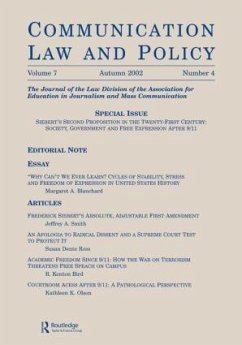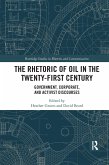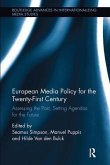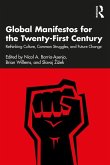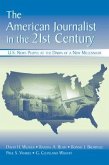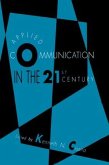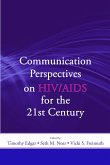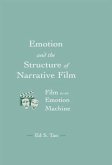In 1952, legal scholar and historian Frederick S. Siebert published his monumental study of three centuries of press freedom in England, in which he enunciated and supported two propositions that were remarkable for their simplicity. The second of the propositions has become a guiding principle in the study of free expression. This special issue provides a remarkable body of work focusing on this key proposition in the context of one of today's great tragedies--September 11, 2001. It begins with an essay examining cycles of stability/stress and the reactions to those cycles, followed by the application of a concept to courtroom access issues following September 11. The last two articles provide an account of how times of stress--the period following the events of September 11, in particular--inhibit academic freedom and an overview of Siebert's life and work.
Hinweis: Dieser Artikel kann nur an eine deutsche Lieferadresse ausgeliefert werden.
Hinweis: Dieser Artikel kann nur an eine deutsche Lieferadresse ausgeliefert werden.

